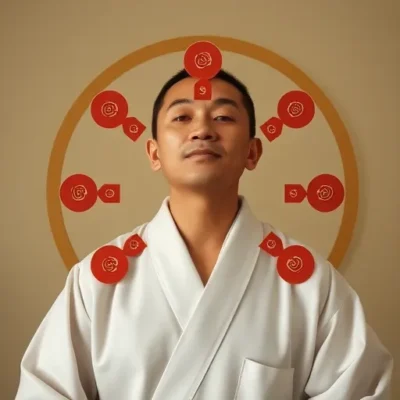In an era where Eastern practices like Feng Shui, Tarot, and Qi Gong are gaining global recognition, a new frontier is emerging in the world of hypnosis. Hailing from Japan, the Japan Hypnosis Association is set to bring its cutting-edge “Non-Verbal Hypnosis” technique to the shores of Taiwan, Hong Kong, and Malaysia, captivating audiences and practitioners alike.
The upcoming “Advanced Non-Verbal Hypnosis” course, scheduled to take place in Taiwan, has already garnered the attention of over 20 participants, not only from within Taiwan but also from the neighboring regions of Hong Kong and Malaysia. This surge of interest across Asia reflects the growing fascination with the power of hypnosis and the allure of the non-verbal approach.
Taiwan, in particular, has proven to be a receptive and fertile ground for the Japan Hypnosis Association’s endeavors. As one walks the streets of Taiwan, the pervasive presence of practices like Feng Shui, divination, and Qi Gong suggests a cultural affinity for the spiritual realm. This openness to esoteric disciplines may contribute to the warm reception the association’s non-verbal hypnosis course has received, with a substantial number of Taiwanese participants eager to explore this novel technique. Furthermore, the association’s “Beauty Hypnosis” course, which helps individuals unlock their inner radiance, has also seen a significant increase in Taiwanese enrollments, reflecting the island’s deep appreciation for holistic well-being and aesthetics.
The Art of Nonverbal Hypnosis: Captivating Audiences Across Asia

The Allure of Nonverbal Hypnosis Resonates Globally
The Japanese Hypnosis Club has embarked on a remarkable journey, expanding its influence beyond the borders of Japan. Its latest venture, a Advanced Nonverbal Hypnosis Workshop, has generated significant interest from Taiwan, Hong Kong, and Malaysia, attracting a diverse group of over 20 participants. This cross-cultural exchange is a testament to the growing fascination with the art of nonverbal hypnosis, a technique that transcends language and taps into the deeper realms of the human psyche.
Embracing the Spiritual Landscape of Taiwan
Taiwan, with its rich cultural heritage interwoven with practices like Feng Shui, Tarot, and Qigong, provides a unique backdrop for the Japanese Hypnosis Club’s foray into nonverbal hypnosis. The Taiwanese people’s openness to spiritual and holistic approaches has created a receptive environment for the club’s teachings. The upcoming workshop in Taiwan is an exciting new challenge, as the club’s nonverbal hypnosis techniques resonate with the island’s cultural inclinations towards the metaphysical.
Bridging the Gap: Systematic Nonverbal Techniques
The Japanese Hypnosis Club’s strength lies in its ability to seamlessly blend traditional nonverbal techniques with modern scientific understanding. While the ancient practices of Taoism have long explored the manipulation of “qi” and spiritual energies through nonverbal means, the club’s approach offers a structured and systematic framework. By incorporating scientific principles and empirical knowledge, the club provides participants with a comprehensive understanding of the underlying mechanisms, empowering them to effectively apply these techniques in practical settings.
Revolutionizing Mind Transformation | Non-Verbal Hypnosis in Asian Markets
In the dynamic realm of psychological transformation, non-verbal hypnosis emerges as a groundbreaking approach capturing unprecedented attention across Asian markets. The Japanese Hypnosis Club has pioneered an innovative methodology that transcends traditional communication barriers, attracting professionals and enthusiasts from Taiwan, Hong Kong, and Malaysia. This cutting-edge technique represents more than mere communication strategy; it embodies a holistic approach to understanding human consciousness and potential. By integrating ancient wisdom from Eastern philosophical traditions with contemporary scientific insights, non-verbal hypnosis offers practitioners a sophisticated toolkit for personal and professional development. The intricate dance of energy manipulation, rooted in Taoist principles, provides a unique pathway to accessing deeper levels of human perception and interaction. Practitioners learn to communicate beyond verbal language, utilizing subtle energetic cues and sophisticated body language techniques that reveal profound psychological insights.
Bridging Cultural Wisdom and Modern Psychological Techniques

The Japanese Hypnosis Club’s approach represents a remarkable fusion of traditional Eastern philosophical concepts and modern psychological methodologies. Their non-verbal hypnosis training programs have successfully created a structured framework that demystifies complex energetic interactions, making advanced psychological techniques accessible to diverse audiences. Unlike traditional approaches that rely solely on verbal communication, this method emphasizes the power of non-linguistic transmission of information and emotional states. Participants from various cultural backgrounds find themselves drawn to this transformative practice, recognizing its potential for personal growth and professional enhancement. The program’s scientific grounding ensures that practitioners can develop repeatable skills, moving beyond intuitive practices to a more systematic understanding of human psychological dynamics. By providing a comprehensive curriculum that balances theoretical knowledge with practical applications, the Japanese Hypnosis Club has positioned itself as a pioneering institution in the field of mind-body transformation.
Global Impact and Future Perspectives of Non-Verbal Hypnosis
The expanding global interest in non-verbal hypnosis signals a significant shift in understanding human potential and psychological intervention strategies. As practitioners from Taiwan, Hong Kong, and Malaysia participate in these innovative training programs, they contribute to a broader dialogue about cross-cultural psychological techniques. The Japanese Hypnosis Club’s vision extends beyond regional boundaries, seeking to establish a global network of professionals who can leverage these sophisticated communication strategies. By emphasizing the universal aspects of human experience while respecting cultural nuances, these programs create a unique platform for mutual understanding and personal development. The future of non-verbal hypnosis appears promising, with potential applications ranging from therapeutic interventions to professional coaching and interpersonal communication enhancement. As more individuals recognize the profound potential of these techniques, the boundaries between traditional psychological practices and innovative mind transformation strategies continue to blur, opening exciting new frontiers of human exploration and understanding.




Comments